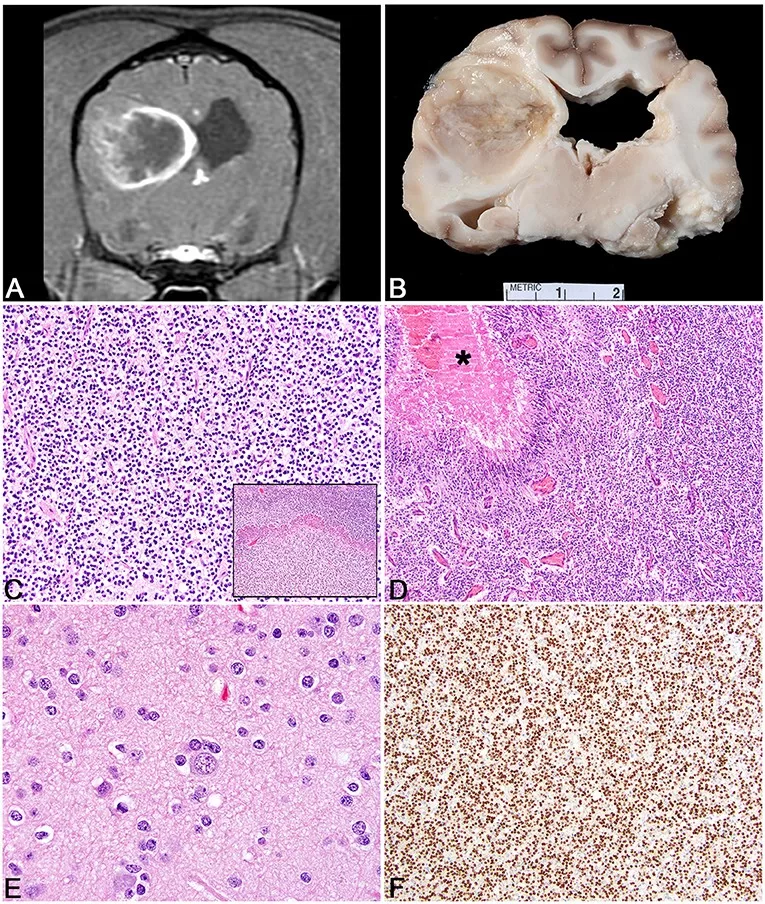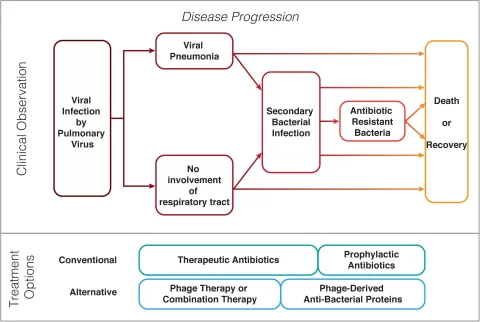Malignant brain tumors in dogs represent a critical health challenge that many pet owners must face, often feeling overwhelmed by the implications of a brain cancer diagnosis. These tumors, which can either be primary or secondary, disrupt the lives of our beloved canines and present a variety of distressing symptoms such as seizures and behavioral changes. Fortunately, advances in veterinary oncology are paving the way for more effective dog brain tumor treatment, including innovative therapies like mRNA vaccines for dogs, which show promise in managing cancer. Understanding the various canine cancer therapies available is essential for pet owners looking to provide the best care possible. As research progresses, the hope for better outcomes in managing malignant brain tumors continues to grow, illuminating a path for improved quality of life for affected dogs.
When discussing malignant brain tumors that affect dogs, it’s important to recognize the broader implications of brain cancer within our canine companions. These tumors can cause various neurological symptoms and often require specialized care and treatment strategies from veterinary professionals. Owners may explore a range of options including surgical interventions and adjunctive therapies, aimed at alleviating the burden of this serious condition. Recent advancements in the field of veterinary oncology are offering alternative remedies such as mRNA vaccine therapies, which ignite new hope in the battle against these daunting canine health issues. As we delve deeper into the complexities of dog brain tumors, understanding their nature and treatment becomes vital for both pet owners and veterinarians striving to enhance the lives of their patients.
What Are Malignant Brain Tumors in Dogs?
Malignant brain tumors in dogs, often referred to as canine brain cancer, are a critical concern for pet owners. These tumors can be either primary, originating from the brain itself, or secondary, arising from cancerous cells that have spread from other parts of the body. Symptoms associated with brain tumors can include seizures, loss of coordination, lethargy, and behavioral changes, which can cause significant distress for both the dog and its owner. Given the complexity of these tumors, early diagnosis and intervention are essential for optimal management.
Additionally, it is important to understand that the types of malignant brain tumors can vary widely. Common forms seen in dogs include gliomas and meningiomas, each presenting unique challenges and treatment considerations. The determination of whether a tumor is malignant can profoundly influence a dog’s prognosis, emphasizing the need for comprehensive veterinary care and potentially complex diagnostic procedures such as MRIs and CT scans.
Innovative Treatment Options for Canine Brain Cancer
Recent advancements in treatment for malignant brain tumors in dogs have introduced new hope for affected pets. Among these developments, the mRNA cancer vaccine promises to revolutionize how veterinarians approach treatment. Unlike traditional therapies that may involve extensive chemotherapy or radiation, this innovative vaccine stimulates the dog’s immune system to target and attack malignant cells directly. Clinical trials indicate strong immune responses in dogs, showcasing a novel avenue in the fight against brain cancer.
In addition to mRNA vaccines, traditional treatment avenues such as surgery and chemotherapy continue to play significant roles in managing canine brain tumors. Surgical interventions aim to remove accessible tumors, potentially improving quality of life and extending survival. Post-operative chemotherapy may further aid in destroying residual cancerous cells. The synergy of innovative and traditional treatments provides a comprehensive strategy against brain cancer in dogs, contributing to positive outcomes.
The Role of Palliative Care in Canine Oncology
Palliative care is a crucial aspect of the management of malignant brain tumors in dogs, especially for those facing advanced illness stages or inoperable tumors. This approach focuses on improving quality of life while alleviating pain and discomfort, rather than pursuing aggressive cancer treatment. Effective palliative care options may include pain medications, nutritional support, and environmental adaptations to enhance comfort.
Veterinary professionals emphasize that a compassionate approach to palliative care can significantly enhance a dog’s remaining time with their owner. This may involve regular check-ins with veterinary oncologists who can adjust pain management strategies as needed, ensuring that dogs are not only more comfortable but also enjoying the highest quality of life possible, regardless of the progression of their illness.
Emerging Veterinary Oncology Treatments for Dogs
Ongoing research in veterinary oncology continues to explore emerging therapies for malignant brain tumors in dogs. Among these innovations, Tumor Treating Fields (TTFields) represent a novel technology designed to disrupt cancer cell proliferation through non-invasive electric fields. Early studies indicate that TTFields may enhance survival rates and improve remission periods for dogs suffering from various cancers, including brain tumors.
Beyond TTFields, there is a growing interest in gene therapies and personalized medicine for canine cancer treatment. Researchers are beginning to understand the genetic markers associated with different tumor types, potentially leading to tailored therapies that specifically target the unique characteristics of a dog’s tumor. The evolving landscape of treatment options promises exciting advancements in combating brain cancer in dogs.
Understanding Prognosis and Life Expectancy for Affected Dogs
The prognosis for dogs with malignant brain tumors varies widely, influenced by factors such as tumor location, type, and the individual dog’s response to treatment. Generally, aggressive treatment methods like surgery combined with chemotherapy may yield better survival rates compared to conservative approaches focusing solely on palliative care. Pet owners are encouraged to engage in thorough discussions with their veterinary oncologists to understand the implications of their pet’s specific diagnosis.
Understanding potential outcomes is vital for owners making treatment decisions. While dogs receiving supportive care may realize quality of life for a few additional months, those undergoing comprehensive treatment could enjoy significant prolongation of life. For many pet owners, the emotional complexity of navigating these decisions is amplified by the desire to provide the best possible quality of life for their beloved companions.
Frequently Asked Questions
What are the common symptoms of malignant brain tumors in dogs?
Malignant brain tumors in dogs, also referred to as brain cancer in dogs, can present various symptoms. Common signs include seizures, behavioral changes, difficulties with coordination and mobility, vision problems, and lethargy. Observing any unusual behavior in your dog may warrant a visit to your veterinarian for further evaluation.
What treatment options are available for a dog diagnosed with a malignant brain tumor?
For a dog diagnosed with a malignant brain tumor, treatment options generally include surgical removal of the tumor, follow-up chemotherapy, and possibly radiation therapy. New treatments, such as the mRNA cancer vaccine for dogs, are also being explored in veterinary oncology. The choice of treatment depends on tumor type, location, and the dog’s overall health.
How effective is chemotherapy in treating brain tumors in dogs?
Chemotherapy can be an effective option in treating malignant brain tumors in dogs, especially after surgical removal. It aims to shrink tumors and manage symptoms, improving the dog’s quality of life. However, the effectiveness can vary based on individual factors, including the tumor type and the dog’s response to the medication.
Is palliative care necessary for dogs with malignant brain cancer?
Yes, palliative care is an essential component for dogs diagnosed with malignant brain cancer, especially when curative treatment options are limited. It focuses on providing comfort through pain management and improving the dog’s quality of life until the end.
What recent innovations are being explored in canine cancer therapies?
Recent innovations in canine cancer therapies include the development of mRNA vaccines specifically for dogs suffering from malignant brain tumors. These vaccines are designed to stimulate the immune system to fight cancer cells. Additionally, emerging treatments like Tumor Treating Fields (TTFields) are being researched for their potential effectiveness against various cancers in dogs.
| Topic | Details |
|---|---|
| Introduction | A guide providing essential information about malignant brain tumors in dogs and recent treatment options. |
| Understanding Malignant Brain Tumors | Malignant brain tumors are serious and can either be primary or secondary tumors, presenting symptoms such as seizures and mobility issues. |
| Treatment Options | 1. mRNA Cancer Vaccine – Strong immune response triggered; promising for terminal tumors. 2. Surgical & Chemotherapy – Tumor removal and subsequent treatments are common. 3. Palliative Care – Focused on comfort for advanced stages. 4. Emerging Treatments – Investigating Tumor Treating Fields (TTFields). 5. Ongoing Research – Targeted therapies based on genetic factors. |
| Prognosis and Life Expectancy | Life expectancy varies based on tumor type, treatments, and health; treatment can extend life. |
| Conclusion | Innovative treatments like mRNA vaccines or suitable alternative methods provide hope against brain cancer, prompting informed decisions for better dog care. |
Summary
Malignant brain tumors in dogs represent a serious and often devastating diagnosis for pet owners. As veterinary medicine advances, various innovative treatment options are being developed that offer hope for improved outcomes. From mRNA cancer vaccines to enhanced surgical procedures, there is a growing focus on personalized treatment plans that cater to the individual dog’s needs. Understanding the nature of malignant brain tumors in dogs and utilizing available therapies can play a crucial role in maintaining quality of life and extending survival. Consulting with a veterinary oncologist remains essential for owners navigating this challenging journey.
The content provided on this blog (e.g., symptom descriptions, health tips, or general advice) is for informational purposes only and is not a substitute for professional medical advice, diagnosis, or treatment. Always seek the guidance of your physician or other qualified healthcare provider with any questions you may have regarding a medical condition. Never disregard professional medical advice or delay seeking it because of something you have read on this website. If you believe you may have a medical emergency, call your doctor or emergency services immediately. Reliance on any information provided by this blog is solely at your own risk.






